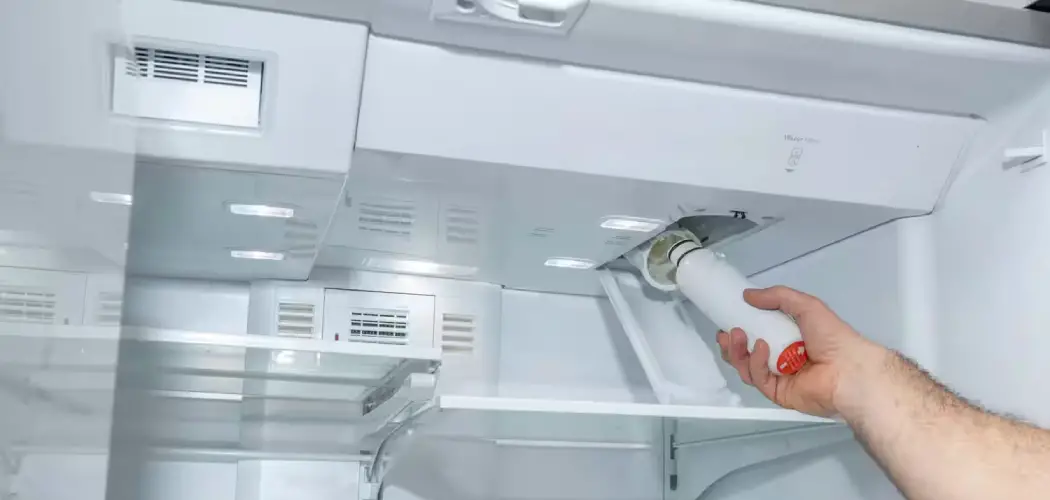Selecting the appropriate water filter for your refrigerator is a crucial decision that impacts both the quality of your drinking water and the efficiency of your appliance. With a multitude of options available, navigating through the choices can be overwhelming.
However, understanding how to find the right water filter for your specific refrigerator model is essential to ensure clean and safe water consumption. Whether you have a side-by-side, French door, or top-freezer refrigerator, this guide will provide you with valuable insights and considerations on how to find the right water filter for my refrigerator.
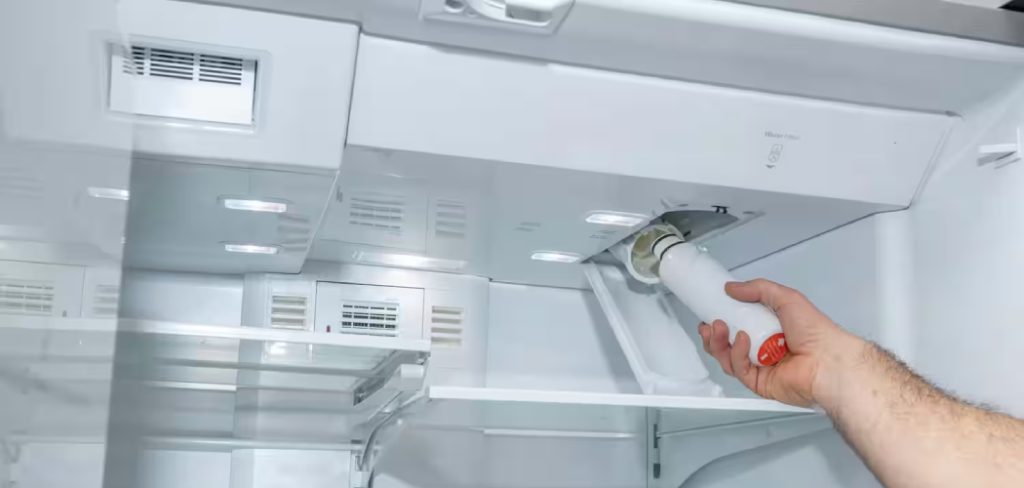
From understanding compatibility to evaluating filtration capabilities, we’ll walk you through the process of selecting the ideal water filter that aligns perfectly with your refrigerator’s requirements and your family’s health needs.
Importance of Clean and Filtered Water in the Refrigerator
Clean, filtered water is essential for any refrigerator user. Not only does it provide a refreshing and healthy option for hydration during the hot summer months, but having your own home-filtered water can help ensure that your family is getting clean drinking water free from harmful contaminants.
Having the right filter installed in your fridge will also save you money in the long run, as you won’t have to buy bottled water or other beverages. With the right filter, your fridge will produce clean and fresh-tasting water for months on end.
So how do you go about finding the best filter for your refrigerator? Here are some key tips to help.
- Know Your Filter Type: Refrigerator water filters come in two basic types: inline and cartridge-style. Inline filters attach directly to your refrigerator’s water line, while cartridge-style filters are installed within the unit itself. Both offer great filtering capabilities, so it’s important to know which type best fits your fridge.
- Choose a Filter Brand: Refrigerator filters come in a range of brands and models, so you want to make sure you choose one that is reliable and certified. Many filter manufacturers offer their own testing programs to demonstrate the effectiveness of their filters, so look for those certifications when making your selection.
- Compare Costs: Filters can range in price from under $10 to well over $100, so it’s important to compare the cost of both the filters and any associated installation costs. Be sure to factor in the long-term savings of using a filter, as well, as this can help you make an informed decision.
- Have Your Refrigerator Model Number Ready: Each refrigerator model requires its own specific type of filter, so having your fridge’s model number handy will help you make sure you buy the right filter for your unit.
The Role of Water Filters in Maintaining Water Quality
Water filters play an important role in maintaining water quality. They help reduce the amount of contaminants and other impurities that can be found in tap water, which can lead to improved taste and odor. Additionally, water filters are also effective at preventing sediment from building up in pipes and appliances, as well as blocking potential bacteria from entering your home’s drinking water supply.
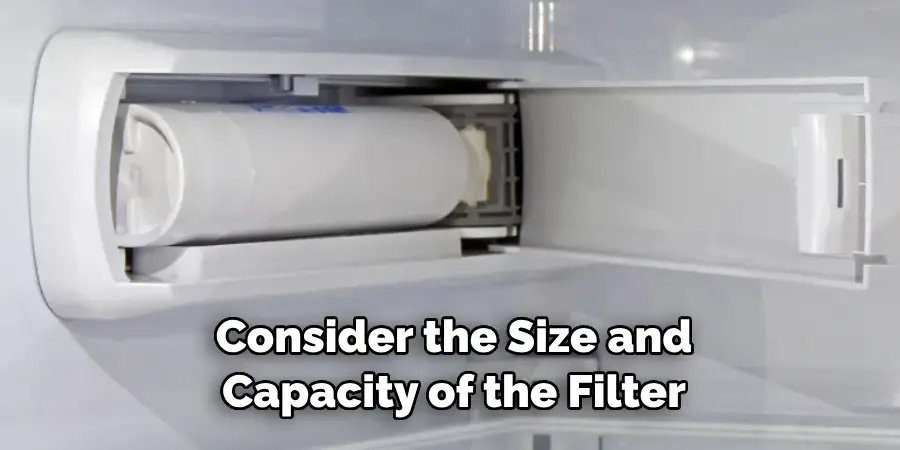
When choosing the right water filter for your refrigerator, it is important to consider the type of water you’re using. For example, if you have a well or surface water supply, then you will need a different type of filter than those who use city municipal water supplies. It’s also important to consider the size and capacity of the filter that you need in order to properly filter the amount of water that your household will be using.
10 Methods How to Find the Right Water Filter for My Refrigerator
Method 1: Identify Your Refrigerator Model
The journey to discovering the perfect water filter for your refrigerator commences with a crucial step – identifying the precise model and make of your appliance. This vital piece of information is often conveniently located on a label inside the refrigerator’s interior, on the door frame, or discreetly positioned at the back.
Accurately knowing your refrigerator’s model number serves as the cornerstone of this endeavor, functioning as a gateway to seeking out water filters that are meticulously designed to harmonize with the unique specifications of your appliance.
Method 2: Check the Manual or Manufacturer’s Website
Drawing insights from your refrigerator’s manual or embarking on a virtual visit to the manufacturer’s official website can yield invaluable guidance. It’s not uncommon for refrigerator manuals to impart wisdom regarding the compatible water filter model or to proffer a curated list of recommended filters. On the other hand, the digital realm offers an array of virtual nooks where manufacturers have thoughtfully dedicated sections to Parts and Accessories.
Method 3: Determine the Filter Type
The multifaceted world of refrigerators encompasses diverse types of water filters, each tailored to suit distinct preferences and configurations. Arming yourself with knowledge regarding the filter type your refrigerator mandates is pivotal. Some refrigerators are equipped with internal filters, nestled discreetly within the refrigerator’s confines. Conversely, external filters stand as an alternative, linking to the water supply line and seamlessly integrating with the refrigerator’s operation.
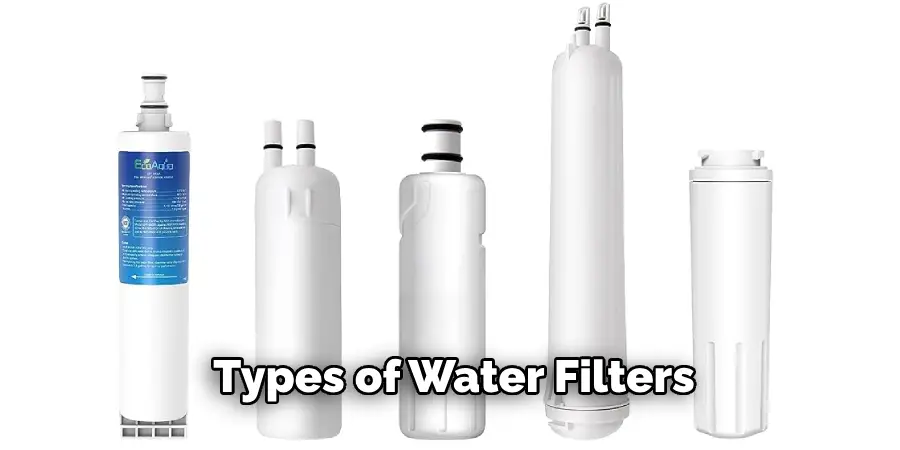
Method 4: Consider Filter Compatibility
Navigating the waters of water filter selection mandates a steadfast commitment to compatibility. Ensuring the chosen filter is inherently compatible with your refrigerator model is non-negotiable. The intricate interplay of components within the appliance hinges on the precise alignment of the filter with your refrigerator’s specifications.
Failing to adhere to compatibility guidelines could result in an array of undesirable consequences, including leaks, suboptimal filtration, or compromised appliance functionality. This underscores the importance of meticulously cross-referencing the filter’s compatibility with the model number of your beloved refrigerator.
Method 5: Evaluate Filtration Capabilities
Water filters, much like the requirements of households, come in an array of iterations, each boasting distinct filtration capabilities. Some filters concentrate on the removal of fundamental impurities, such as the ubiquitous chlorine taste and odor. Alternatively, advanced filtration options extend their prowess to the elimination of an expansive array of contaminants – think heavy metals like lead, elusive mercury particles, and even potentially disruptive cysts.
By discerning the specific filtration needs of your household and comprehending the intricacies of your water quality, you’re poised to select a water filter that aligns impeccably with your requirements.
Method 6: Check for Certification
When navigating the labyrinth of water filter options, heed the importance of certification as a guiding compass. Reputable organizations such as NSF International provide certifications that bear testimony to a filter’s performance prowess.
These certifications arise from rigorous testing and underscore the filter’s adherence to stringent standards for contaminant reduction. As you peruse the vast landscape of water filters, seek those adorned with certifications like NSF/ANSI 42, emblematic of fundamental filtration, and NSF/ANSI 53, a testament to advanced filtration capabilities.
Method 7: Consider Filter Lifespan
The lifespan of a water filter stands as a vital determinant in the realm of filter selection. This temporal metric is often quantified in terms of gallons of water filtered or the passage of months.
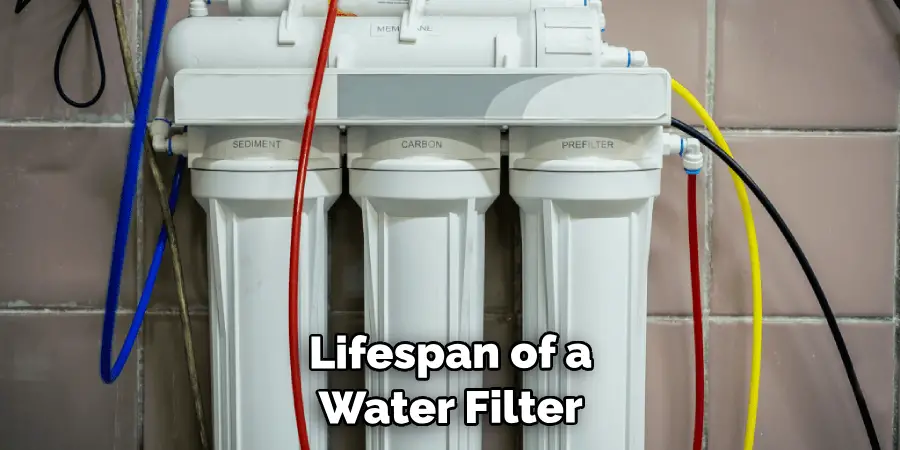
By taking into account your household’s water consumption patterns and coupling this with the anticipated longevity of the filter, you can proactively gauge the frequency at which filter replacements will be required. Filters equipped with indicators that signal the need for replacement further simplify this maintenance aspect.
Method 8: Compare Brands and Prices
In the quest to uncover the ideal water filter, embarking on a journey of brand comparison is prudent. Diverse brands unveil filters that span a spectrum of attributes, encompassing reputation, filtration capabilities, and features. As you tread the path of comparison, keep in mind that the cost factor varies. While it’s prudent to align your selection with your budget, prioritize the intersection of quality and compatibility to ensure the filtration process is both efficient and effective.
Method 9: Read User Reviews
User reviews are akin to treasure troves of insights, offering a panoramic view of real-world experiences with specific water filters. Engaging with the experiences and feedback of other refrigerator owners who have traversed the waters of filter selection empowers you with informed decision-making capabilities. Reading these candid reflections grants you a window into the filter’s performance, durability, and overall impact on users’ lives.
Method 10: Purchase from Reputable Retailers
As you finalize the journey of procuring a water filter for your refrigerator, the selection of a reputable retailer becomes a pivotal factor. Opt for retailers of established standing, be they physical appliance stores, home improvement havens, or authorized online merchants. A judicious choice in retailer safeguards you against the potential pitfalls of counterfeit or unauthorized filters, which could compromise your refrigerator’s operation and potentially bestow damage upon your appliance.
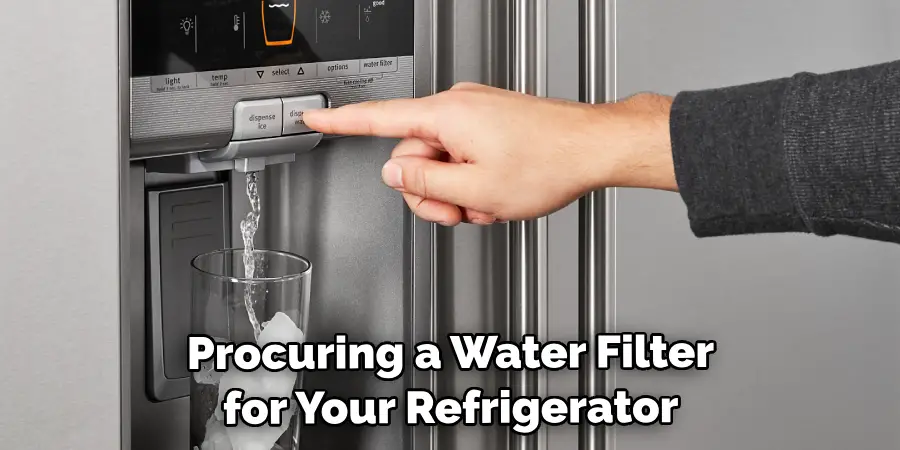
Conclusion
All in all, finding the right water filter for your refrigerator is very important. It can be a challenging task, but you can tackle it with ease if you follow the steps outlined above. Educating yourself on what type of filter is ideal for your fridge setup, determining the size and shape specifications of the filter you need, and understanding any other considerations should be taken into account before making a decision—these are all vital aspects that mustn’t be overlooked. Follow these simple instructions outlined in this blog post about how to find the right water filter for my refrigerator, and you’ll be able to get the job done with ease.
About
Angela is the chief editor of Indoorense. She began her career as an interior designer before applying her strategic and creative passion to lifestyle and home.
She has close to 15 years of experience in creative writing and online content strategy for housekeeping and cleaning,home decorations as well as other efforts.
She loves her job and has the privilege of working with an extraordinary team. She lives with her husband, two sons, and daughter in Petersburg. When she’s not busy working she spent time with her family.

